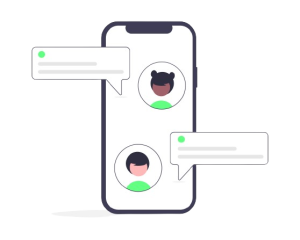Introduction: How Technology is Changing Healthcare
The healthcare industry is going through a major transformation. Technology is changing the way our doctors and nurses work, how we access healthcare, and how we engage with our health. The introduction of new technologies has helped the industry to be more efficient, cost-effective, and patient-centred. For example, it has made it possible for doctors to have instant access to medical information on a global scale. EMRs (electronic medical records) are now used in hospitals all over the world and are crucial for providing better care to patients.
Technology is also changing how patients can engage with their health by providing them with more opportunities for self-care. Patients can now use technology like fitness trackers or apps that monitor their blood pressure or heart rate from home without having to go into a doctor’s office.
Digital health has revolutionized how patients access their health information and how doctors provide care. Mobile apps are used by patients to manage their conditions, while doctors can use them to share medical data with other specialists who are not in the same location. Telehealth is also becoming more popular as it allows for remote consultations between doctors and patients in different locations.
Robotics have also been introduced in the healthcare sector for various purposes such as surgery assistance or drug delivery. They allow
Mention One Advantage of AI for Medicine?
The medical field is changing rapidly thanks to AI. The human body is a complex system, so it’s difficult to build an app that could accurately predict its behaviour. However, these days, there are a lot of programs that can help doctors diagnose the problem and provide a solution. They are also used for things like predicting heart attacks and strokes, which has improved patient care immensely.
With AI, doctors can diagnose and treat patients faster and more accurately. The problem of getting a correct diagnosis of rare diseases has been solved. The latest method is to use artificial intelligence to compare the faces of patients with similar symptoms and find common patterns.
Doctors are increasingly turning to artificial intelligence for help in treating patients. AI can help diagnose and track patients, predict which treatments will work, and provide a personalized treatment plan. Artificial intelligence is also used in radiology and cardiology to analyse data from X-rays, CT scans, and heart monitors, and then provide a diagnosis.
The Future of Robotics in Medicine
Robotics in medicine is a growing industry. The future of robotics in medicine is bright, as it will help with the shortage of medical professionals and reduce their workload.
The use of robots in medical fields is not new. From surgery to rehabilitation, robots are used to assist nurses and doctors with various tasks. Robots are also used for research purposes, such as testing new drugs or treatments.

